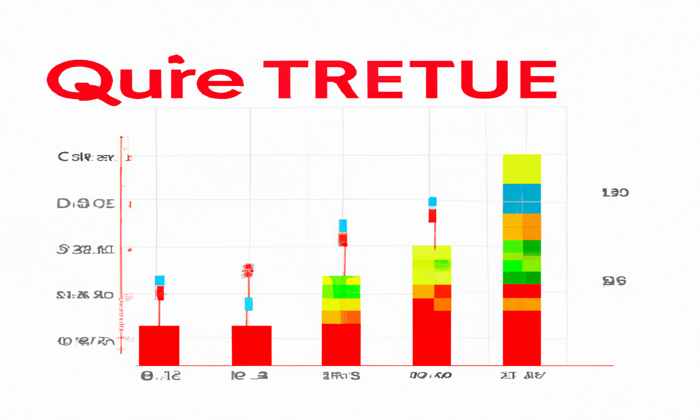The Oklahoma Bitcoin Reserve Act, also known as HB1203, has faced a significant setback after the Senate Revenue and Taxation Committee voted 6-5 against its advancement. Designed to allow the state to invest in Bitcoin and other digital assets, the act sought to enable Oklahoma to explore innovative opportunities in the realm of Bitcoin investment and crypto asset management. By capping investments at 10% of specified state funds, the legislation aimed at securely integrating cryptocurrency into Oklahoma’s financial landscape. The current decision not only limits the state’s engagement with digital currency but also stymies potential advancements in Bitcoin taxation practices within Oklahoma. As states like Arizona and Texas move forward with digital assets legislation, Oklahoma’s recent vote leaves its crypto investment strategies in limbo, highlighting the ongoing debate about the future of finance in the digital age.
The recent rejection of HB1203 highlights a crucial moment in Oklahoma’s journey toward embracing digital currencies, as the state navigates the complexities of investing in cryptocurrencies. Known as the Strategic Bitcoin Reserve Act, this proposed legislation was intended to facilitate state-level participation in Bitcoin, potentially revolutionizing how Oklahoma handles new financial assets. The decision by the Senate committee to block this initiative represents a broader discussion surrounding crypto investment dynamics, digital asset strategies, and the legislative framework necessary for Bitcoin taxation in Oklahoma. By analyzing the implications of such legislative measures, we can better understand the shifting landscape of finance and the role that state legislation plays in advancing or hindering cryptocurrency adoption. As Oklahoma steps back from the Bitcoin Reserve Race, it reinforces the need for ongoing dialogue about regulatory approaches to digital currencies.
Understanding the Oklahoma Bitcoin Reserve Act (HB1203)
The Oklahoma Bitcoin Reserve Act, known as HB1203, was intended to establish a framework for the state to invest in Bitcoin and major digital assets. This proposed legislation sought to empower the State Treasurer to utilize various state funds, including the State General Fund and Revenue Stabilization Fund, to make strategic investments in cryptocurrencies. With a cap of 10% of funds per account, HB1203 aimed to ensure that investments remained proportional and responsible. Many supporters of the bill viewed it as a way to diversify Oklahoma’s investment portfolio and capitalize on the growing trend of crypto investment in Oklahoma.
Despite passing the initial stages with significant support, the bill ultimately faced defeat in the Senate Revenue and Taxation Committee. A tight vote of 6-5 against the legislation highlighted the bipartisan concerns regarding Bitcoin taxation in Oklahoma and the regulatory implications of such investments. Opponents expressed worries about the volatility of digital assets and the potential risks they pose to state funds. This failed initiative indicates a cautious approach from the Oklahoma government regarding adoption of new financial technologies.
Frequently Asked Questions
What is the Oklahoma Bitcoin Reserve Act (HB1203)?
The Oklahoma Bitcoin Reserve Act, formally known as HB1203, was a proposed legislative bill aimed at allowing the State Treasurer to invest state funds into Bitcoin and other digital assets. It intended to cap investments at 10% of each fund account and included provisions for dealing with Bitcoin taxation in Oklahoma.
Why was the HB1203 Bitcoin bill rejected in Oklahoma?
The HB1203 Bitcoin bill faced rejection by a narrow vote of 6–5 in the Senate Revenue and Taxation Committee due to bipartisan concerns. Some senators opposed the act’s provisions regarding the state’s investment in Bitcoin and its implications for public funds.
How would the Oklahoma Bitcoin Reserve Act have impacted crypto investment in Oklahoma?
If passed, the Oklahoma Bitcoin Reserve Act would have significantly advanced crypto investment in Oklahoma by allowing state funds to be invested in Bitcoin, stablecoins, and other major digital assets, alongside integrating digital asset options into state retirement funds.
What are the implications of Bitcoin taxation in Oklahoma after the rejection of HB1203?
With the rejection of the Oklahoma Bitcoin Reserve Act, Bitcoin taxation in Oklahoma remains unchanged. The bill stipulated that taxes or fees paid in Bitcoin would need to be converted into dollars for state treasury purposes, which will not be implemented unless a similar bill is passed in the future.
What could be the future of crypto investment legislation in Oklahoma?
Although the Oklahoma Bitcoin Reserve Act (HB1203) has been rejected, the ongoing interest in digital assets suggests that future legislation may be proposed. Oklahoma may look towards other states like Texas and Arizona, which are actively pursuing crypto investment strategies.
What were the main supporters of the Oklahoma Bitcoin investment bill saying?
Supporters of the Oklahoma Bitcoin investment bill, including Representative Cody Maynard, argued that Bitcoin serves as a hedge against government inflation and overreach, emphasizing its decentralized nature and status as a store of value aligned with financial freedom principles.
How does the rejection of HB1203 affect the stance of Oklahoma towards digital asset legislation?
The rejection of HB1203 indicates a temporary setback for digital asset legislation in Oklahoma, potentially slowing the state’s engagement with Bitcoin and other cryptocurrencies. However, the evolving landscape of crypto investments may still prompt future legislative efforts.
Who were the key opponents of the Oklahoma Bitcoin Reserve Act?
The key opponents of the Oklahoma Bitcoin Reserve Act included Senators Todd Gollihare, Chuck Hall, Brent Howard, Julia Kirt, Mark Mann, and Dave Rader. Their bipartisan dissent contributed to the narrow rejection of HB1203.
| Key Point | Details |
|---|---|
| Bill Name | Strategic Bitcoin Reserve Act (HB1203) |
| Vote Outcome | Failed in the Senate Revenue and Taxation Committee with a 6–5 vote |
| Date Introduced | January 15 |
| Supporter | Representative Cody Maynard |
| Key Provisions | Authorize state investment in Bitcoin, stablecoins; 10% cap per account; digital asset custody; integration into retirement funds. |
| Criticism | Bipartisan opposition led to bill’s failure; committee members voted against it |
| Current Status | Oklahoma exits Bitcoin Reserve Race, bill will not proceed. |
| Other States Remaining | Arizona, New Hampshire, Texas |
Summary
The Oklahoma Bitcoin Reserve Act, aimed at allowing the state to invest in Bitcoin and major digital assets, has been halted after a narrow vote by the Senate Revenue and Taxation Committee. With a final tally of 6–5 against it, this bill faced significant opposition despite initial support. As Oklahoma steps back from the Bitcoin Reserve Race, other states like Arizona, New Hampshire, and Texas remain in contention for advancing similar legislation, highlighting the evolving landscape of cryptocurrency integration in state financial frameworks.
The Oklahoma Bitcoin Reserve Act was recently put to the test but ultimately fell short in the Senate Revenue and Taxation Committee, where it was rejected by a close 6–5 vote. Designed to allow the State Treasurer to allocate funds from several state accounts into Bitcoin and other significant digital assets, this proposed legislation had the potential to reshape the landscape of Oklahoma Bitcoin investment. With investment parameters that aimed for up to 10% of funds in crypto holdings and strict regulations on custodianship, the bill sought to provide a structured approach to Bitcoin taxation Oklahoma. Additionally, provisions for integrating digital assets into state retirement funds were also on the table, reflecting a growing interest in innovative financial solutions. Unfortunately, interest in the HB1203 Bitcoin bill faced obstacles despite initial bipartisan support, signaling a retreat for Oklahoma in the burgeoning market of crypto investment Oklahoma.
In recent discussions about state-level cryptocurrency initiatives, the failure of the Oklahoma Bitcoin Reserve Act highlights the challenges and complexities surrounding digital assets legislation. This legislation aimed to formalize how Oklahoma could engage with Bitcoin and other cryptocurrencies, allowing strategic allocations of state funds toward these emerging technologies. The rejection of the HB1203 Bitcoin bill mirrors broader trends across the nation, as various states grapple with the implications of blockchain technology and how it interacts with existing financial frameworks. As the demand for crypto investment options continues to rise, the need for clear guidelines surrounding Bitcoin taxation in Oklahoma becomes increasingly pertinent. Observers will now look to neighboring states like Arizona and Texas, which are advancing their own frameworks for managing digital asset investments and taxation.














